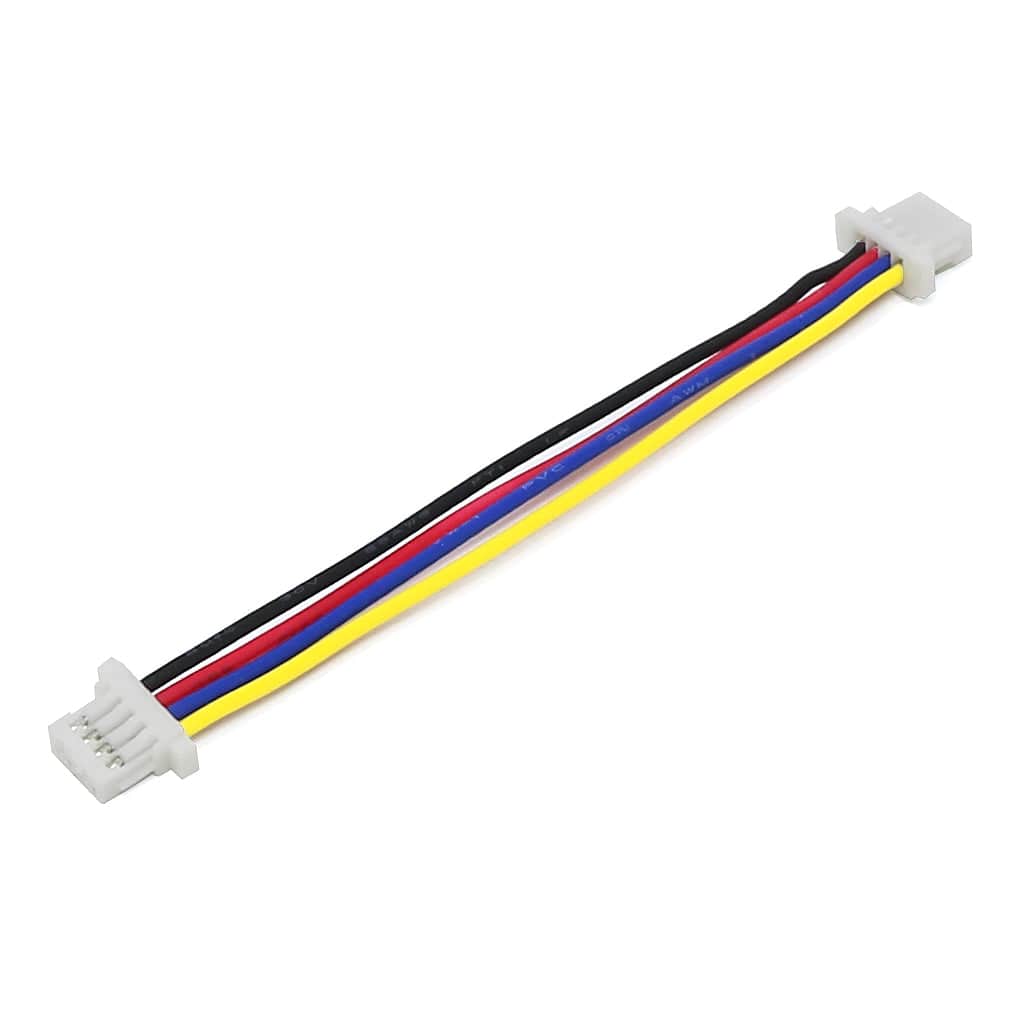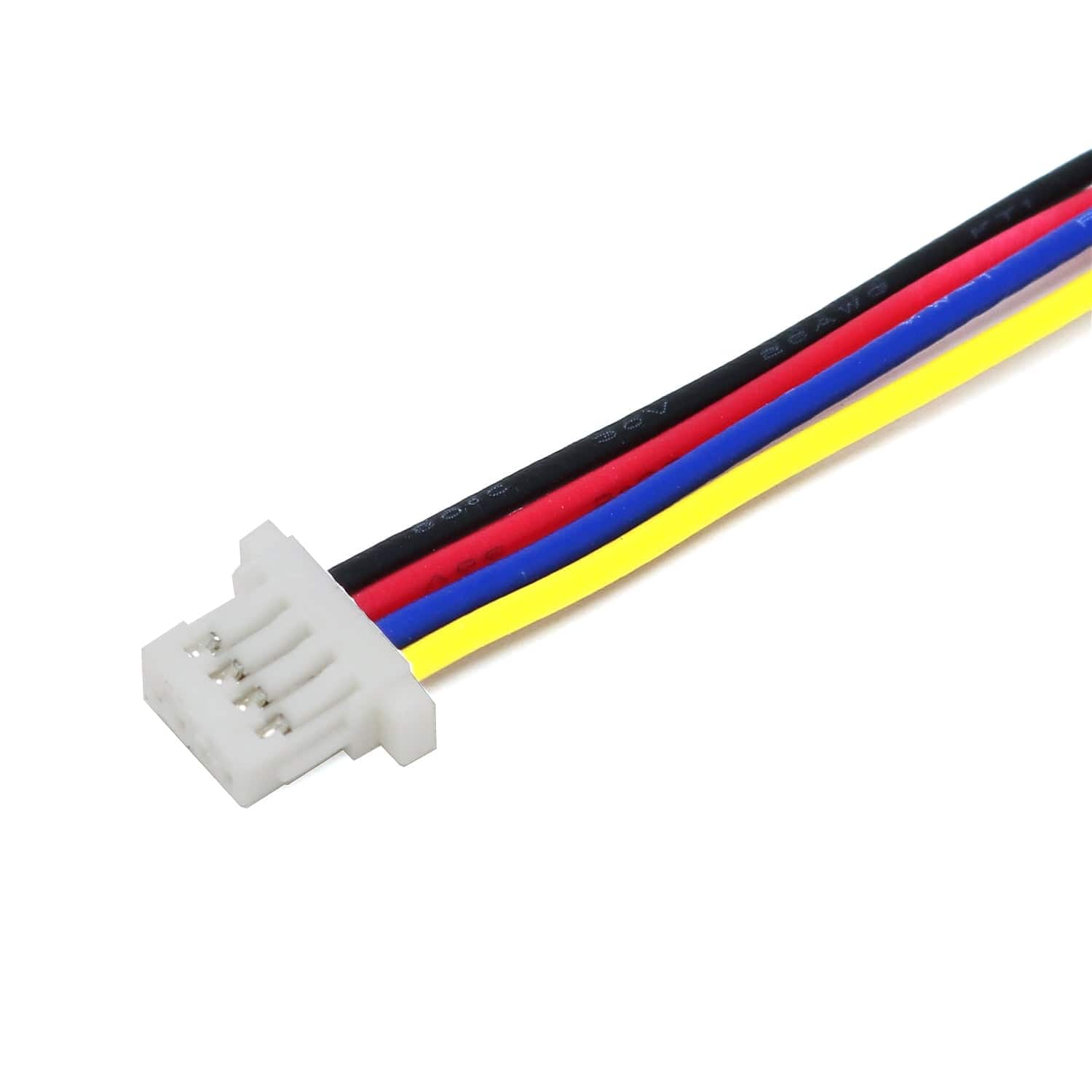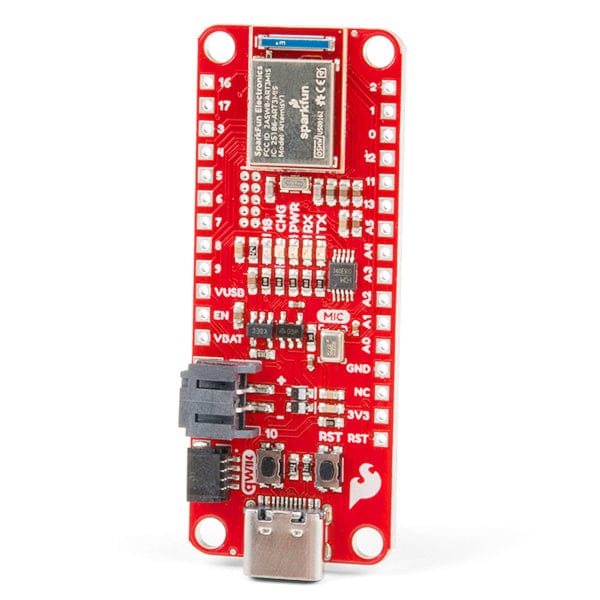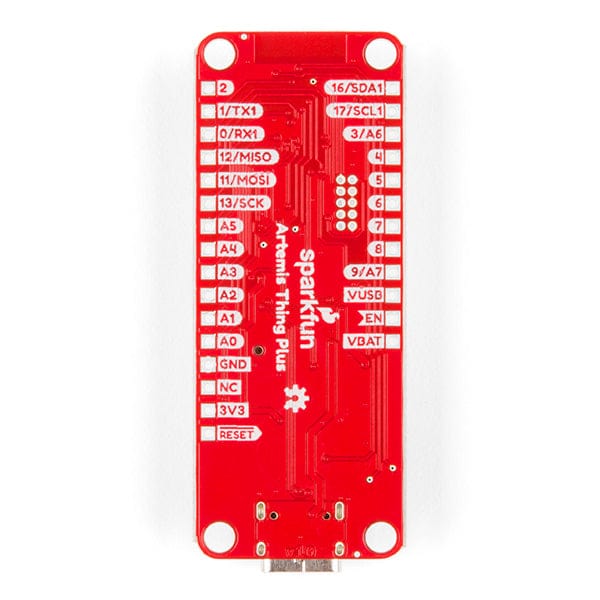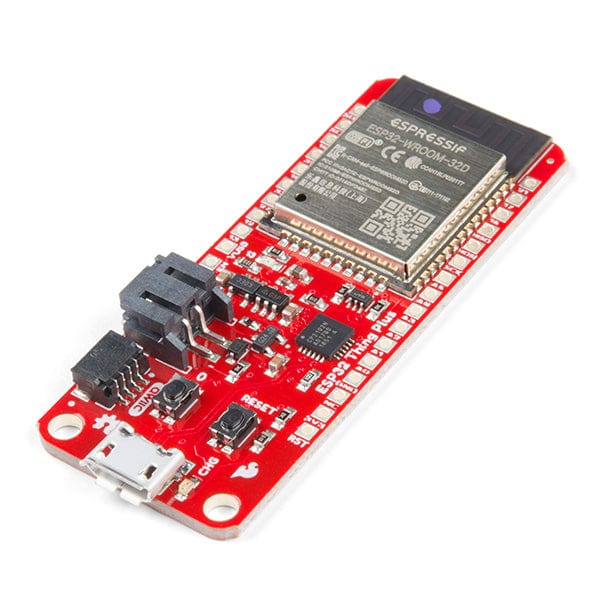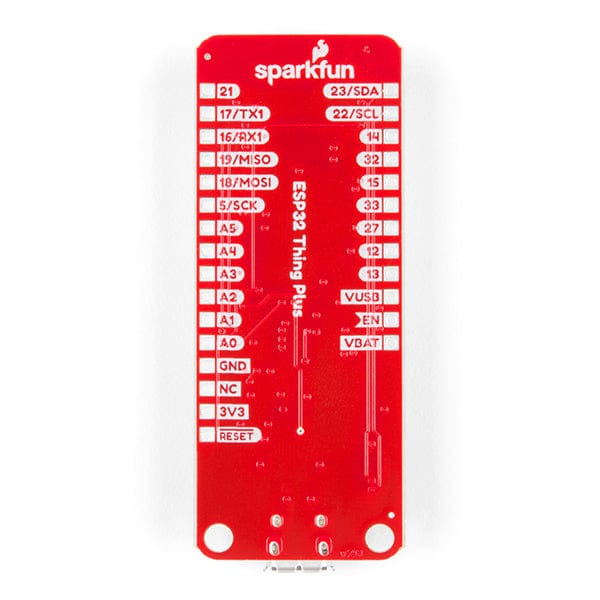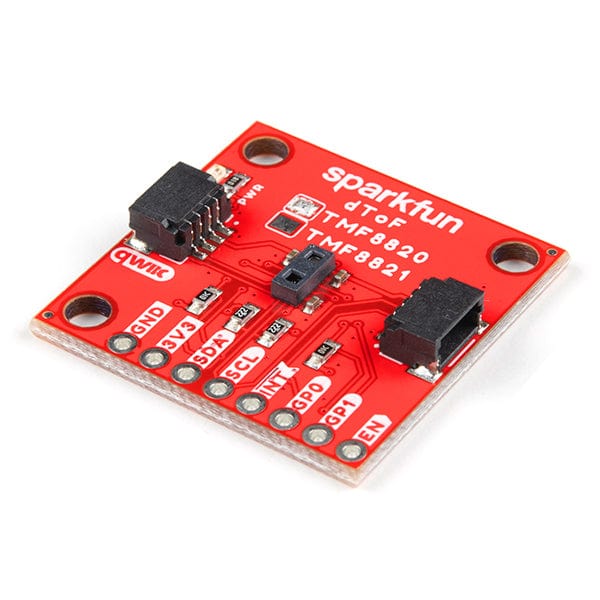
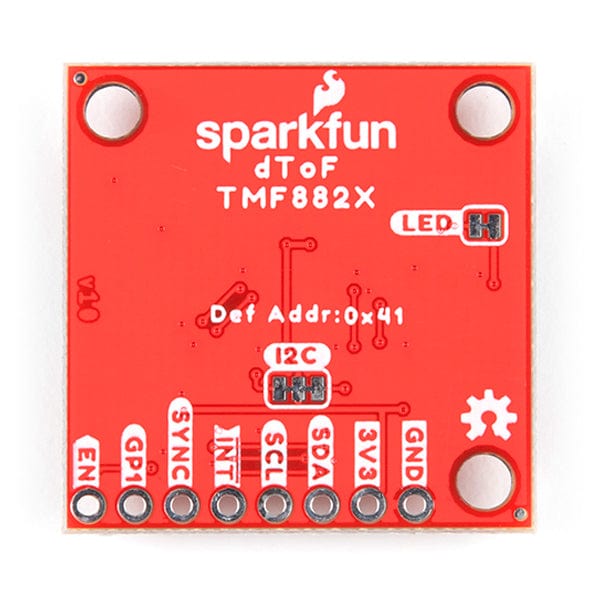
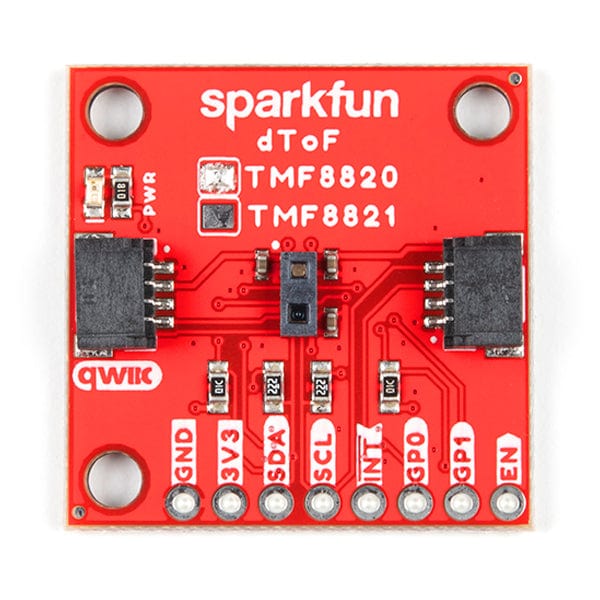
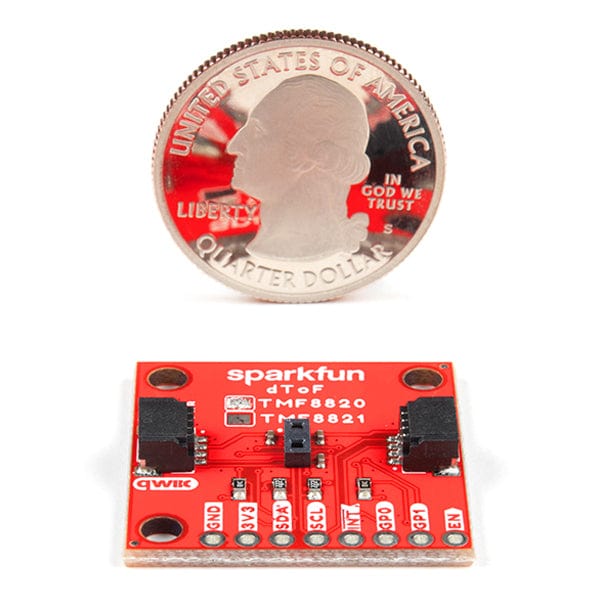
Login / Signup
Cart
Your cart is empty
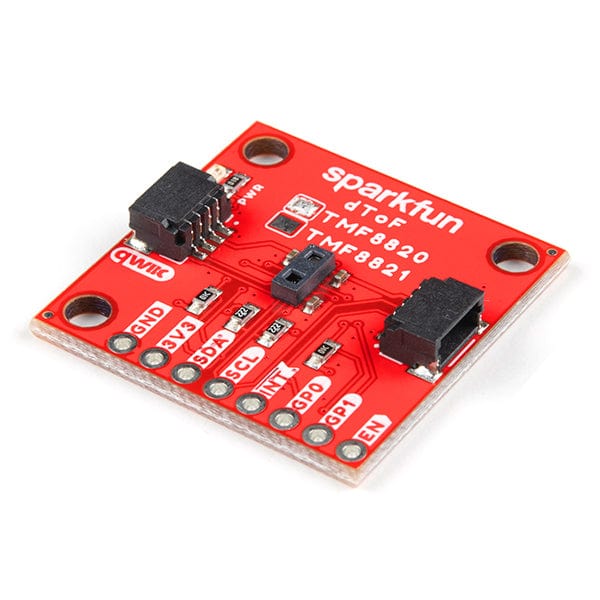
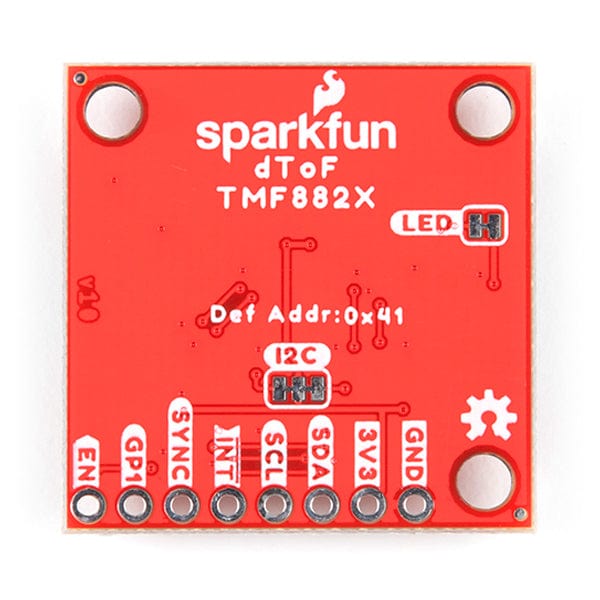
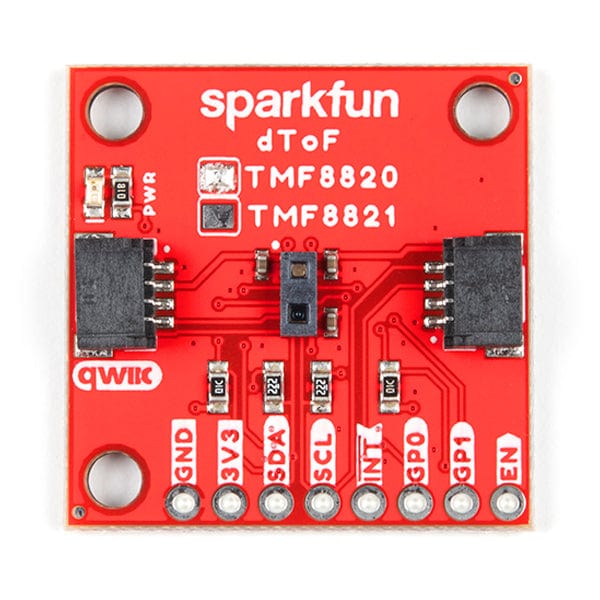
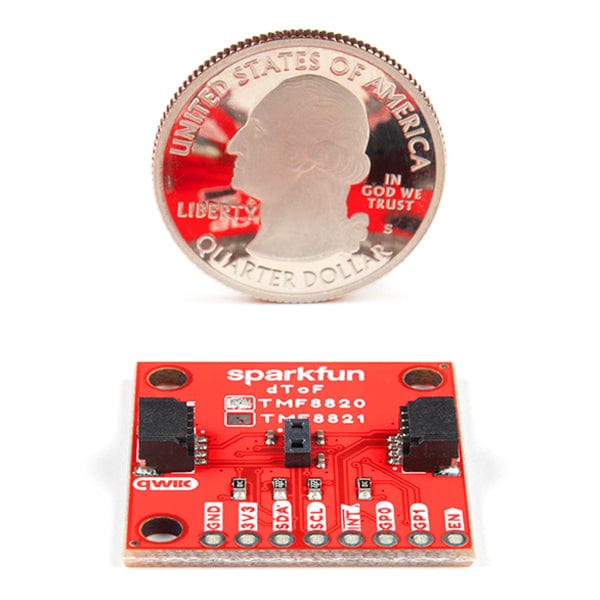
The SparkFun Qwiic dToF TMF8820 Imager is a direct time-of-flight (dToF) sensor that includes a single modular package with an associated Vertical Cavity Surface Emitting Laser (VCSEL) from AMS. The dToF device is based on Single Photon Avalanche Photodiode (SPAD), time-to-digital converter (TDC) and histogram technology to achieve a 5000mm detection range. Due to its lens on the SPAD, it supports 3x3 multizone output data and a very wide, dynamically adjustable field of view. A multi-lens-array (MLA) inside the package above the VCSEL widens up the FoI (field of illumination). All processing of the raw data is performed on-chip and the TMF8820 provides distance information together with confidence values on its I2C interface. The high performance on-chip optical filter blocks most of the ambient light, and enables distance measurements in dark and sunlight environments.
To make it even easier to get your readings, all communication is enacted exclusively via I2C, utilizing our handy Qwiic system so no soldering is required to connect it to the rest of your system. However, we still have broken out 0.1”-spaced pins in case you prefer to use a breadboard. The TMF8820 offers two configurable GPIO pins and one enable (EN) pin, which are broken out as PTH pads. The board also includes a power LED and I2C pull-up resistors, each configurable via jumpers. This version has a footprint that uses the Qwiic Standard size (1.0in. x 1.0in.). For a smaller footprint, check out our Qwiic Mini dToF TMF8820 Imager board!
This sensor is great for projects such as distance measurement for camera autofocus - Laser Detect Autofocus - LDAF (mobile phone), presence detection (computing and communication), object detection and collision avoidance (robotics), and light curtain (industrial).
Note: CLASS 1 LASER PRODUCT CLASSIFIED IEC 60825-1 201
Get Started with the Qwiic DTOF TMF882X Hookup guide
We recommend a microcontroller with enough flash to run your program code. Sorry, Uno's (or any development board using the ATmega328P) are out. We recommend choosing either an Artemis Thing Plus, ESP32 Thing Plus, or a comparable device as your development board.





